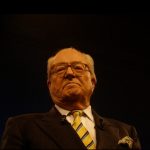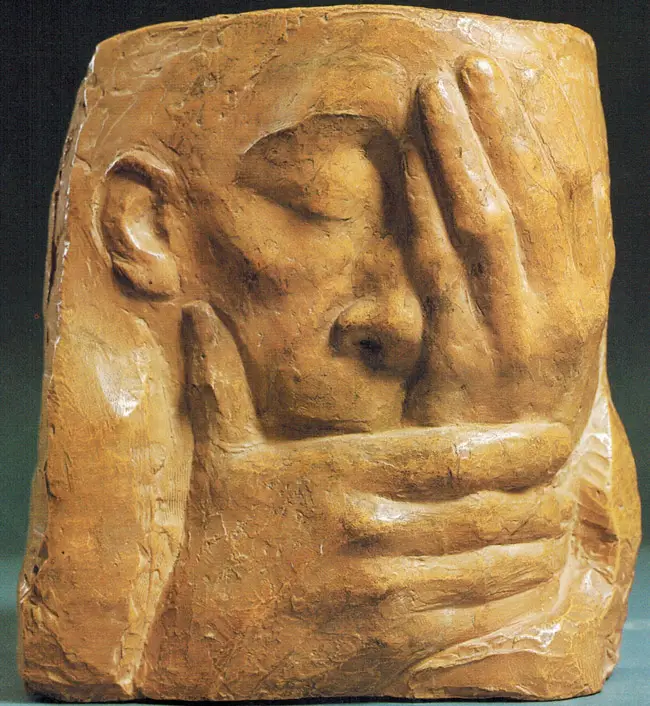Particularly when these batteries are soaked in saltwater, they can become “ticking time bombs,” in the words of Florida State Fire Marshall Jimmy Patronis. That’s because the fire doesn’t always occur immediately when the battery is flooded. According to the National Highway Traffic Safety Administration, about 36 EVs flooded by Hurricane Ian in Florida in 2022 caught fire, including several that were being towed after the storm on flatbed trailers.
The Conversation
The Good and Bad of Ozempic
Today, GLP-1 drugs, including Ozempic, Wegovy, Mounjaro and Zepbound, have become household names and key tools in the fight against obesity. GLP-1 drugs could help treat dozens of other ailments as well. But there are risks. GLP-1 drugs come with significant side effects and increase the risk of 19 health conditions, such as gastrointestinal issues, kidney stones and acute pancreatitis, in which the pancreas becomes inflamed and dysfunctional.
Charlie Hebdo 10 Years On: Conversations About Free Speech Are Still Too Black and White
Communities’ reactions to satire are deeply influenced by factors such as religious marginalization, political exclusion and cultural tensions. The Charlie Hebdo attack was a horrific act of violence that cannot be justified. However, the discussions that followed often overlooked the ways in which the magazine’s caricatures perpetuated racist stereotypes – particularly against Muslims.
Trump’s Attack on Birthright Citizenship
One of President Donald Trump’s first executive orders relating to immigration and immigrants is a direct attack on the long-standing constitutional principle of birthright citizenship. That’s the declaration in the 14th Amendment to the Constitution that anyone born on U.S. soil is a U.S. citizen, regardless of their parents’ nationalities or immigration status.
Sexual Identity Is More Fluid Than Previously Thought
Nearly 16% of people changed their sexual identity over a 12-year period, according to a new study I conducted with my colleagues, involving around 35,000 residents of Stockholm County. This challenges long-held beliefs about sexual identity being largely fixed.
3 Strategies to Bridge the Deepening Partisan Divide
A record-high 80% of Americans believe the U.S. is greatly divided on “the most important values”. A similar percentage of Americans said they feared violence and threats to democracy. Almost half the country believes people on the other side of the political divide are “downright evil.” Some say that the vitriolic rhetoric of political leaders and social media influencers is partly to blame for the country’s state of toxic polarization. Others cite social media platforms that amplify misinformation and polarization.
David Lynch Exposed the Rot at the Heart of American Culture
Lynch’s films and TV series reflected the dark, ominous, often bizarre underbelly of American culture – one increasingly out of the shadows today. American cinema holds up a mirror to society. Lynch was a master at this. His images of corruption, violence and toxic masculinity ring all too familiar in America today.
RFK’s Vaccine Disinformation is Distorting Science and Threatening Public Health
Doctors, scientists and public health researchers have expressed concerns that Kennedy would turn his views into policies that could undermine public health. As a case in point, news reports have highlighted how Kennedy’s lawyer, Aaron Siri, has in recent years petitioned the Food and Drug Administration to withdraw or suspend approval of numerous vaccines over alleged safety concerns.
Rule of Law Lost in Hush Money Sentencing of Trump
Trump won’t be able to buy a gun in some states, travel to 38 countries including Canada and Japan without a waiver, or do jury duty. Yet Trump was sentenced only to an “unconditional discharge”, meaning he will face no further penalties. Nearly half of people convicted of the same crime in the state of New York would go to prison, and Trump could have faced a fine of up to US$170,000.
2024 Was Deadliest Year on Record for Reporters
Since 7 October 2023, at least 146 journalists have been killed in Gaza, the West Bank, Israel, and Lebanon, though the actual numbers are likely much higher, as the CPJ is investigating numerous unconfirmed reports of other journalists being killed, missing or detained. Meanwhile, foreign journalists are denied access to Gaza by Israeli authorities.
Panama to U.S. and China: Buzz Off
Panama is aware of the importance of its key geopolitical asset and keen to balance U.S. and Chinese interests with its own desire to run the canal without undue influence from either Washington or Beijing.
Beware Snowbirds: The Far Right Is Growing in Canada, Too
A book on the far right in Canada, “The Great Right North,” shows that events like the Freedom Convoy are representative of where the far right is going, how it is recruiting, how it is communicating internally and with Canadians at large, and how it is progressing in the national political discourse, with similarities with the United State’s maga movement.
Global Temperatures Passed Critical 1.5°C Milestone for First Time in 2024
2024 was the first year on record with a global average temperature exceeding 1.5°C above pre-industrial levels. All continents except Australasia and Antarctica experienced their hottest year on record, with 11 months of the year exceeding the 1.5°C level. Global temperatures have been at record levels – and still rising – for several years now. The previous hottest year on record was 2023.
Police More Likely to Make Domestic Violence Arrests When Pets Are Also Abused
Animal cruelty is weaponized when an intimate partner threatens to harm, or actually harms, a pet to control their partner. This tactic is powerful. Victims of intimate partner violence regularly cite fear for the safety of their pet as a primary reason they do not leave an abusive situation.
How the U.S. Could Make Canada an American Territory
Every Canadian needs to pay attention to American history: In one treaty, the U.S. annexed the present-day states of California, Nevada, Utah, New Mexico, Arizona, Colorado, Oklahoma, Kansas and Wyoming. It subsequently illegally invaded Indigenous territory in the west. Canada could be next — perhaps not immediately as the 51st state, but quite possibly as a U.S. territory that would deny Canadians any voting rights for Congress or the presidency. The constitutional architecture exists in the U.S. to make it happen.
Trump’s Unconditional Discharge Explained
Donald Trump is now a convicted felon, and will be the first president of the United States with a felony conviction. The sentencing brings this phase of the case to an end. Once the sentence is officially entered in a final judgment, Trump can appeal the case, as he has a legal right to do so. Trump’s attorney, Todd Blanche, made clear during the sentencing that Trump intends to appeal.
How the Santa Ana Winds Fuel California’s Deadly Fires
Thousands of homes and other structures, including several schools, had burned by Jan. 9, and at least five people had died. Officials urged more than 180,000 residents to evacuate at the height of the fires. With the winds so strong, there was little firefighters could do to control the flames. Here’s what causes extreme winds like this in Southern California, and why they create such a dangerous fire risk.
How Jean-Marie Le Pen Mainstreamed Nationalist Bigotry
The death of Jean-Marie Le Pen, former leader of the party once known as the National Front, occurs at a time when the mainstreaming of far-right politics in France seems almost complete. Le Pen was, for most of his career, considered the devil in French politics. Yet today, his party, headed by his daughter and now called National Rally (Rassemblement National), is at the gates of power.
Plants that Evolved in Florida Over Millennia Face Extinction and Lack Protection
The potential extinction of one of Florida’s ancient plant species is more than just the loss of an individual species; it’s the loss of millions of years of evolution. These plants have thrived in Florida’s ecosystems through gradual adaptations over millennia, and their disappearance would leave lasting gaps in the region’s evolutionary history. The collapse of these plant species also threatens the broader ecosystem, including wildlife such as scrub jays and insects such as bee flies that rely on them for food and shelter.
Electrical Vehicle Fires: Should We Be Worried?
It’s save to own an electric vehicle, or EV, but only if certain safety measures are followed. Systemic measures, like advanced fire suppression systems in public spaces, are critical, but individual EV owners also play a vital role in minimising risks. Owning an EV with a home-charging setup offers great convenience, but it’s essential to address potential hazards.
‘Literally’ Is Here to Stay, and English Will Survive
Few words so rile language purists as the use of the adverb “literally” in a figurative sense, as in, “That movie literally blew my mind.” While it might feel like nails screeching on a blackboard, the use of nonliteral “literally” developed as an organic and dynamic outgrowth of the very human desire to communicate emotion and intensity.
How Cities Are Reinventing the Public-Private Partnership
An emerging trend with local governments engaged in private-sector collaborations – what we have come to describe as “community-centered, public-private partnerships,” or CP3s. Unlike traditional public-private partnerships, CP3s aren’t just about financial investments; they leverage relationships and trust. And they’re about more than just building infrastructure; they’re about building resilient and inclusive communities.
Men Are Carrying the Brunt of the ‘Loneliness Epidemic’
Emotional pain is linked to serious health issues. But the public’s response to male expressions of emotion and vulnerability is often minimizing, if not dismissive. In May 2023, U.S. Surgeon General Dr. Vivek Murthy released an advisory highlighting what he described as an epidemic of loneliness and isolation in the country. Research confirms this scourge.
Behind the Scenes in the Battle Over “The Satanic Verses”
In March 1989, Mahathir wrote a letter to then UK Prime Minister Margaret Thatcher that was blunt even by his standards. Unlike a lot of his angry letters, this one wasn’t published. Mahathir’s letter was about Salman Rushdie’s controversial book, “The Satanic Verses.” The letter has now been declassified and reveals uncomfortable words.
Election Reform Lost in the Last Election
In the 2024 election, voters proved hesitant to overhaul the election systems they were already familiar with, as almost all of the reforms failed. Voters become familiar with the electoral system they live under and can be slow to embrace changes to that system. It can take several election cycles before they fully adapt to these changes.
As Trump Boasts of Immigrant Roundups, Militias Are Standing By
President-elect Donald Trump has reaffirmed that once he takes office he plans to declare a national emergency and use the military on American streets to accomplish his promises to round up and deport millions of undocumented migrants. Some militia units may see it as their duty to assist with such efforts. In fact, local police may even deputize certain militias to help them deport immigrants.
Ethel Rosenberg Was Innocent. It’s Time to Exonerate Her.
Ethel Rosenberg and her husband, Julius, were executed on June 19, 1953, for conspiracy to commit espionage. They were accused of giving “the secret” of the atomic bomb to the Soviet Union, meaning they supposedly passed vital technological information to help the Soviets develop their own bomb. The author of a book on the Rosenberg case found no “secret,” and that while Julius was a spy, Ethel was not.
Israel’s Increasingly Violent and Racist Settlers
In the past decade, a militant stream gained increasing popularity within the Israeli settlers movement. Its leaders have embraced the followers of Kahanism, a racist ideology promoted by Rabbi Meir Kahane in the 1970s and ‘80s. Kahane proposed extreme policies to promote Jewish supremacy in Israel and the West Bank, such as calls to expel all Arabs from the country or prohibit marriage between Jews and Muslims. Kahane’s followers also justified violence against Palestinians.
The Horror of Native American Boarding Schools and Biden’s Inadequate Apology
Over the past 10 years, many historians and Indigenous scholars have said that what happened at the Indian boarding schools “meets the definition of genocide.” From the 19th to 20th century, children were physically removed from their homes and separated from their families and communities, often without the consent of their parents. The purpose of these schools was to strip Native American children of their Indigenous names, languages, religions and cultural practices.
How Aristotle Explains Trump’s Speeches
With half of the US electorate on his side, Trump’s chaotic speaking style is clearly no barrier to success. If his public appearances are indeed so shambolic, why do they continue to fire up his supporters, attract new ones–and give him the victory? Aristotle would have understood, and explained it this way.
A Few Reminders About Thomas Aquinas
Aquinas is a giant of Western philosophy and theology, and for good reason. His writing is clear, well organized, free from bombast – ideas shine through his words. Famously, he insisted that faith and reason are in harmonious partnership, integrating the known science, philosophy and theology of his day into a comprehensive, interconnected system. All this helps explain why his work has maintained an enduring appeal, even as equally brilliant medieval thinkers have sunk into oblivion.
How Gladiators Inspired Evangelicals’ Sense of Persecution
You might be surprised to learn that there are threads that tie together gladiators, Christian martyrs and the sense of persecution that exists among many U.S. evangelicals today.
America, Not Just Florida, Faces an Insurance Crisis
Home insurance rates are rising in the United States, not only in Florida, which saw tens of billions of dollars in losses from hurricanes Helene and Milton. homeowners insurance increased an average of 11.3% nationwide in 2023, with some states, including Texas, Arizona and Utah, seeing nearly double that increase. Some analysts predict an average increase of about 6% in 2024.
Bob Dylan’s Creative Leap
The Bob Dylan biopic “A Complete Unknown,” starring Timothée Chalamet, focuses on Dylan’s early 1960s transition from idiosyncratic singer of folk songs to internationally renowned singer-songwriter. Sixty years ago, on Halloween Night 1964, a 23-year-old Dylan took the stage at New York City’s Philharmonic Hall. He had become a star within the niche genre of revivalist folk music.
Memo to Rupert Murdoch: Now’s the Time to Sell Fox News
With Trump continuing to be Trump, Fox’s immediate future looks very bright. Political fortunes aside, the longer term future for Fox News looks much less bright. Fox News was a good and faithful campaigner for Trump, but it is notable that when people explain Trump’s victory, Fox is never mentioned. The best way to take the heat out of the Murdoch family conflicts would be to sell, or to float, Fox News, and this is likely to be more profitable now than in a few years’ time.
What Blasphemy Laws Teach Us About Religious Freedom
Some 79 countries around the world continue to enforce blasphemy laws. And in places such as Afghanistan, Brunei, Iran, Nigeria, Pakistan and Saudi Arabia, violation of these measures can result in a death penalty. While the U.S. is not among those countries, it also has a long history of blasphemy laws that reflects a complex fight for the freedom of religion and speech.
The Moral Dimension of America’s Flawed Health Care System
The killing of UnitedHealthcare CEO Brian Thompson has set off soul-searching among many Americans. Part of that reflection is about the public reaction to Thompson’s death and the sympathy the suspect received online, with some people critical of the insurance industry celebrating the assailant as a sort of folk hero. Frustrations are no excuse for murder. But it has become a moment of wider reflection on health care in America, and why so many patients feel the system is broken.
How Foreign Students Boost the Economy
Foreign students pump more than US$40 billion into the U.S. economy and support over 368,000 jobs. That’s not just paying professors and buying textbooks – it includes everything from renting apartments to late-night DoorDash and Grubhub deliveries. And it’s near a record high.
Is News Bias Fueled by Journalists or Readers?
Demand-driven bias happens when newspapers offer slanted news to appeal to readers. Supply-driven bias stems from the ideological leanings of owners or employees. Both had influenced decision-making at The New York Times. The former top editor of The New York Times’ editorial page wrote that slanted coverage at the institution is “pervasive.”
How Liberals Lost Comedy, and Helped Trump Win
Trump’s success with comedy is a result of the new relationship between digital media and the business of joking. For decades, liberals were thought to hold a monopoly on comedy. Moreover, there was little money to be made in comedy acts devoted to right-wing politics. Since 2016, however, a new crop of right-wing comedians has taken to digital platforms and algorithmically driven audience targeting in order to change this reality.
Grieving During the Holidays
Nearly 95% of people who have experienced loss report dealing with at least one symptom of physical or mental distress. Holidays and special occasions, which often include family gatherings, traditions and reminders of what’s missing, can amplify this pain, leaving those grieving feeling isolated and overwhelmed.
Why Teen Girls Are Attracted to Boys who Hurt Them
Messages that link attraction to violence and contempt can occur in different settings and in different ways, and this association is known as “coercive dominant discourse”. Long-term exposure to this discourse leads girls to consider violent boys attractive, eventually pushing them into toxic emotional and sexual relationships.
The Meaning and Controversy of the Global Seed Vault
Today, seed banks around the world are doing much of the work of saving crop varieties that could be essential resources under future growing conditions. The Svalbard Global Seed Vault in Norway supports them all. It is the world’s most famous backup site for seeds that are more precious than data.
Merde Alors: Should We Be Worried About Trump Tariffs on French Wines?
Still traumatised by the 25% Trump tax in place from October 2019 to March 2021, the French wine industry is anticipating further difficulties in exporting to the United States. However, a comparison between the previous tax and what the president-elect has announced for his second term provides some hope.
The Importance of London’s New Slavery Memorial
In 2026, a new memorial to the 12.5 million enslaved people transported to the Americas and Europe – and their descendants – will be unveiled on West India Quay in London’s Docklands. The winning commission, an installation piece by US artist Khaleb Brooks called The Wake, will take the shape of a seven-metre bronze cowrie shell – the currency that was used in the trade of enslaved peoples, and an object symbolic of the entangled history of slavery and capitalism.
Kristallnacht’s Legacy as Hamburg Wrestles with Memory and Reconstruction
Over the past few years, the location of the Bornplatz Synagogue, a former landmark, has become the site of controversy as residents debated whether and how to rebuild the old synagogue, which would demolish the memorial standing there today.
Has Syria Just Traded One Barbarian for Another?
The rebel group that just took over Syria, led by Abu Mohammad al-Golani, originated as an offshoot of the Nusra Front, the official al-Qaida affiliate in Syria. Hayat Tahrir al-Sham was initially recognized for its combat effectiveness and its commitment to global jihadist ideology, or the establishment of strict Islamic rule across the Muslim world.
Syrian Refugees Get Battered From All Sides in Lebanon
For the 1.5 million Syrian refugees already in Lebanon, having fled civil war in Syria, the cease-fire between Israel and Hezbollah introduces new uncertainties. Syrians who temporarily fled Lebanon or were displaced within its borders now face growing hostility and restrictive policies regarding their return, namely from the Lebanese themselves, who have a history of brutality toward and ill treatment of refugees.
Notre Dame Rises from the Ashes, But at What Price?
On April 15, 2019, viewers around the world watched live footage of one of the most famous cathedrals on the planet, Notre-Dame de Paris, being devastated by fire. More than five years later, Notre Dame was due to reopen to the public on December 8th. Behind the headlines, a fierce debate has been raging about who is responsible for funding France’s cultural heritage and whether visitors to the landmark should be charged an entry fee.
The Best Exercises to Boost Brain Health After 60
Contrary to popular belief, the brain does not deteriorate continuously with age. Instead, it only sees the number of its brain cells drop and connections deteriorate from the age of 45 onwards as part of a normal ageing process. But cerebral plasticity, although reduced, is present until the end of life. Each individual will build up a cognitive reserve throughout their lives. The more positive, rich and stimulating the lifestyle, the more powerful and effective the reserve. In other words, it’s possible to moderate the effects of age on cognition.





















































